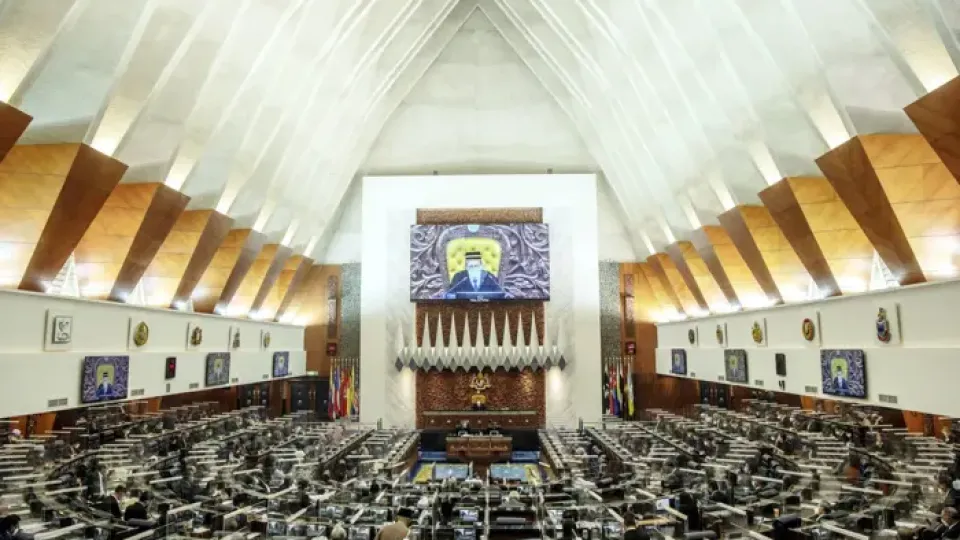February 20, 2025
PETALING JAYA – Any proposed amendments to the Security Offences (Special Measures) Act (Sosma) 2012 should have the rights of the detainees as the main consideration while ensuring national security, say experts.
However, some are conflicted on the need for a special court to specially handle cases under Sosma, calling it impractical.
Senior lawyer Mohamed Haniff Khatri Abdulla said the government must review certain provisions under the Act, particularly those relating to bail which have been seen as biased and unfair by certain quarters, and decide whether to remove the 28-day detention rule completely.
“The government needs to pass a law that is fair to all parties and make sure that it does not impede the powers of the courts and the judiciary,” he said in an interview yesterday.
He was responding to a statement by Home Minister Datuk Seri Saifuddin Nasution Ismail that the government plans to review the classification of offences under Sosma, particularly for strictly non-bailable offences as well as non-bailable offences where bail is at the court’s discretion.
Currently, individuals charged under Sosma are not eligible for bail, except for those aged under 18, women, the elderly and sick, subject to the court’s discretion.
Mohamed Haniff said while a longer period of remand could be allowed for certain offences, there is a need to restore the need for a Magistrate’s order after a remand application where all parties have a right to be heard.
“For normal cases, the remand should be no more than 14 days. But if the police want to extend it to 28 days, they need to appear before the Magistrate,” he said.
Mohamed Haniff said he understood that in some cases the police may need a longer time to investigate certain cases, especially those relating to terrorism.
“It may take quite some time to really probe organised crime or terrorism, or even find their active cells.
“A remand period of 28 days may not be even enough but they need to appear before the Magistrate,” he said.
Welcoming the government’s commitment to amend Sosma, former law minister Datuk Zaid Ibrahim said it is a good start to make it less oppressive.
“Any effort to reduce the detention period and to set up a special court is a welcomed move,” he said.
Suara Rakyat Malaysia (Suaram) executive director Sevan Doraisamy said the rights of detainees must remain a main consideration under the proposed amendments.
On the setting up of a special court to address case backlogs and a review of due process safeguards, including standards on evidence, he said this can be undertaken at the same time as the right to fair trial is strengthened for detainees.
“Suaram looks forward to concrete steps from the Home Ministry in ensuring an inclusive, timely and transparent review process of Sosma, leading to meaningful amendments tabled by the July parliamentary meeting.
“The government’s early efforts in 2023 to consult multisectoral stakeholders about the Sosma amendments were a crucial step forward,” he said, adding that the momentum of the review must now be translated into action.
Parti Sosialis Malaysia (PSM) deputy chair S. Arutchelvan commended the Home Ministry for giving a clear dateline to address the issue.
“I think there is a need to respect human rights as well as balance this with security issues.
“The ball is with the government if it has the political will to pursue amendments,” he said.
However, human rights activist Charles Hector believes there is no need for a special court for Sosma offences.
“Any judge familiar with handling criminal cases can handle them. This is not a specialised area of law that requires judges specialised in such matters.
“The cases are all over the country and the idea of a special court is simply not practical,” he said.
He said even if it is a bailable offence, there is no guarantee that a person gets bail.
“It is the judge who decides – after hearing from parties and deciding based on the particular circumstances and facts of the case.
“Whether bail is granted or not, Parliament should not oust the judges’ jurisdiction in hearing and deciding on bail applications,” he said.
The government, he added, should also repeal Sosma and let all trials be governed by the Evidence Act and the Criminal Procedure Code.

